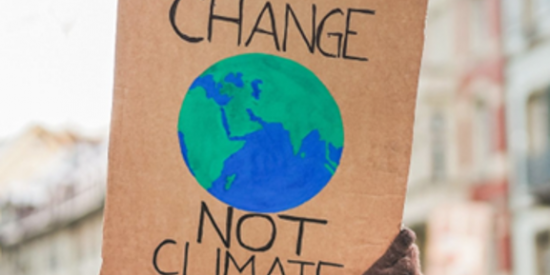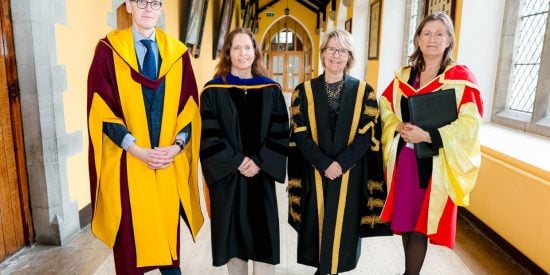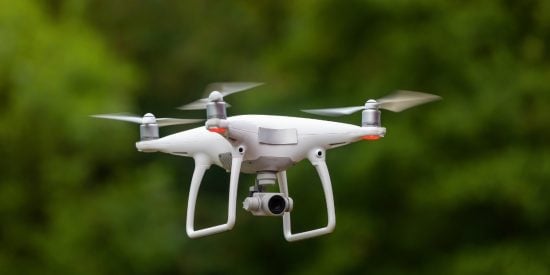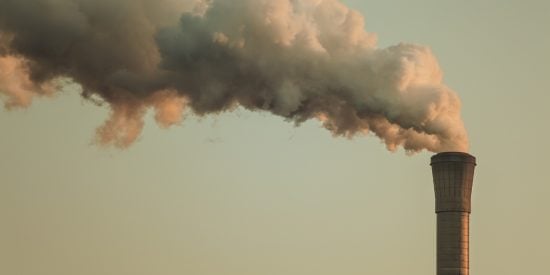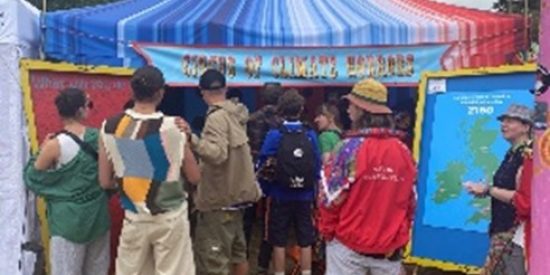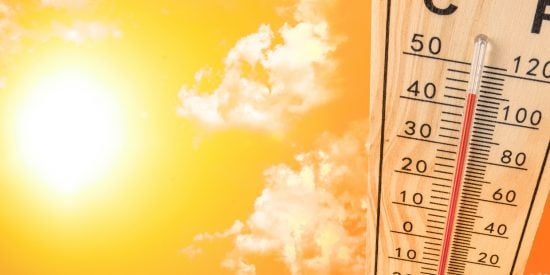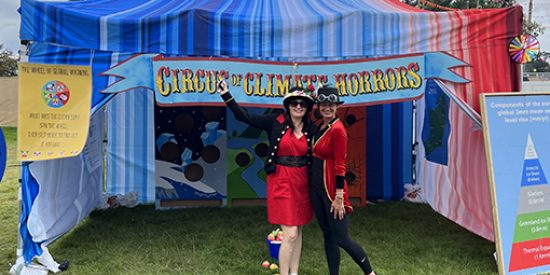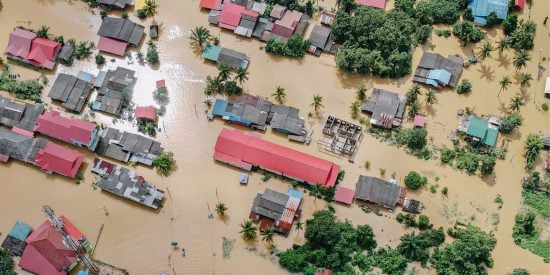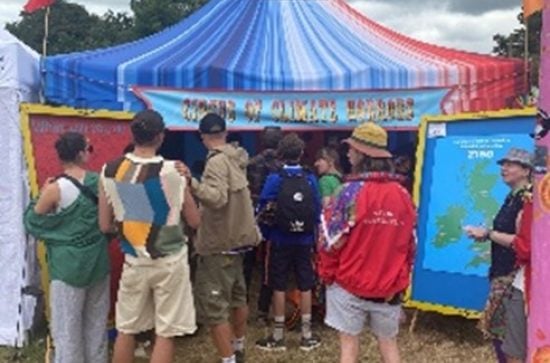
Geographers 'Headline' Glastonbury Festival 2024
by Shirley Howe
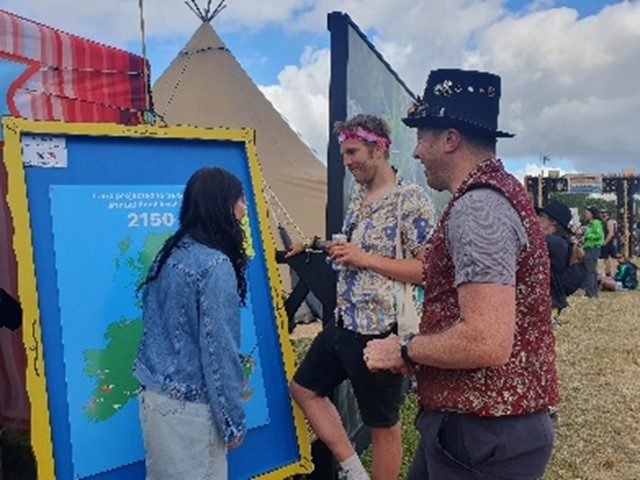
The Circus of Climate Horrors is an exciting outreach project from ICARUS and the Department of Geography at Maynooth University, in collaboration with the Department of Design Innovation. The Circus team of six members has just returned from headlining at the Glastonbury Festival which ran from 26 to 30 June in Somerset, England with attendance of over 200,000 people. Well, not quite headlining—yet—but this is the second year The Circus of Climate Horrors has participated in Science Futures, part of Green Futures, at Glastonbury. It remains the only international university outreach initiative to achieve this. Also this year, we performed a piece about CO2 on the Laboratory Stage partly inspired by the esteemed sitcom, ‘Father Ted’. Extending science communication beyond traditional platforms, the Circus enables audiences to learn about climate change in a way that meaningfully connects personal, societal and planetary implications. Media interest was high, with Irish Independent and RTÉ Radio One Ray D’Arcy Show features.
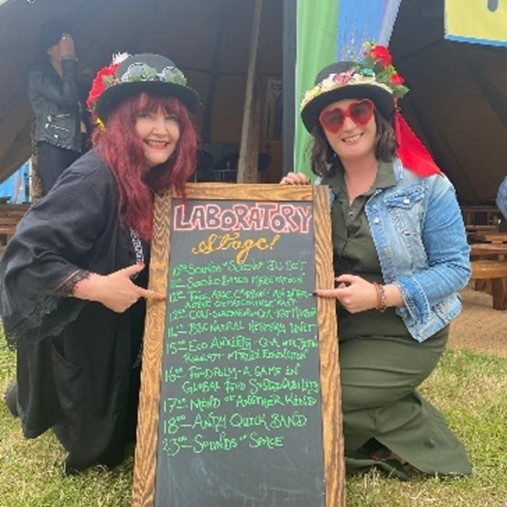
The Circus opens daily at Glastonbury from 10am to 7pm from Wednesday to Sunday, later on Thursday. We camp on-site alongside the other universities, artists and activists participating in Green Futures. Each Circus team member wears a Ringmaster’s top hat, enhancing the carnival-like atmosphere in our climate stripes tent. Our exhibits are playful yet the actions festival-goers must undertake to ‘win’ games communicate key climate processes including greenhouse gas emissions, sea level rise, and the IPCC’s SSPs. Our popular new quiz, ‘Save the Island’, was developed through coursework during the Geography Department’s MSc in Climate Change. Approximately 650 people placed a pin representing their home on our flood map, and our ‘Pledge Wall’ soon filled with climate action commitments. The competition for a high score on our ‘Great Wall of Atmosphere’ leader board was even hotter than a zipped-up sleeping bag.
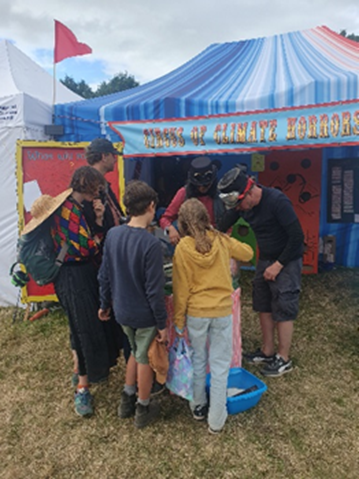
Festival-goers eagerly embraced the opportunity to share their lived knowledge of changing weather (particularly rainfall), sea level and biodiversity patterns, and to learn more about these topics and climate data directly from scientists. Hundreds of climate change conversations every day meant that the Circus team lost our voices by Sunday evening. This is highly rewarding engagement. Taking the research we’re passionate about outside of conferences, labs and lecture theatres opens up new realms of science communication possibility. And what do we, as climate scientist-carnies, take away from festival outreach? The extent of the public appetite for climate change information communicated in an accessible, approachable way; increased understanding of how to actively listen as well as talk; and the importance of never, ever leaving the tent without toilet paper.

